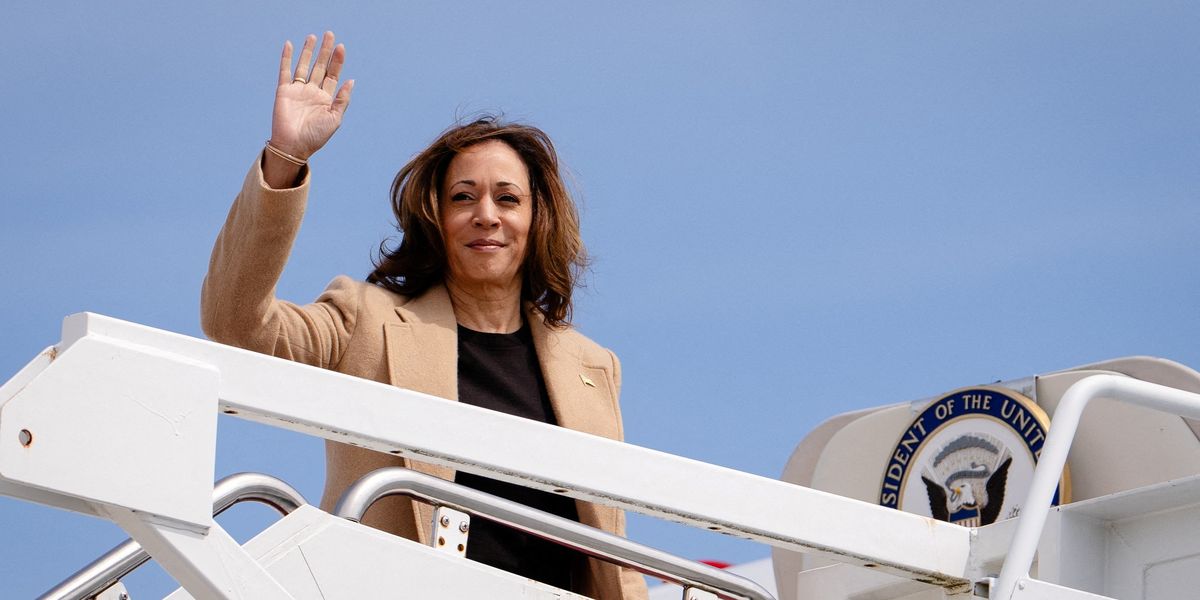Kamala Harris’ U-Turn on Plastic Straws: A Political Strategy or Genuine Change?
In a surprising shift, Vice President Kamala Harris has reversed her stance on banning plastic straws, a topic she passionately addressed during a CNN town hall meeting in 2019. At that time, she asserted, “We do need to ban the plastic straws,” aligning herself with a growing movement aimed at reducing plastic waste. However, her recent campaign communications indicate a change of heart, stating that she no longer supports such a ban. This decision has sparked discussions about the motivations behind it and its implications for her political future.
The Context of the Reversal
Harris’ initial call for a ban on plastic straws was part of a broader environmental agenda that resonated with many voters concerned about climate change and pollution. The issue of single-use plastics has gained traction in various U.S. cities, including Seattle and Washington D.C., which have implemented bans on plastic straws. Additionally, the UK and parts of the EU have taken similar measures, reflecting a global trend toward reducing plastic consumption.
However, as the political landscape evolves, so too do the positions of candidates. Harris’ campaign has indicated that her decision to abandon the proposed ban may be a strategic move to mitigate potential attacks from the Trump campaign, which has previously highlighted her environmental policies as overly radical. Senior adviser Jason Miller from the Trump campaign remarked, “Kamala Harris had a long, liberal, radical record in California well before she even became vice-president…I mean, heck, she wants to get rid of plastic straws, for goodness’ sake.”
A Broader Shift in Policy
Harris’ change on plastic straws is not an isolated incident. Over the past few months, she has adjusted several key positions that she previously held during her 2020 campaign. For instance, she recently announced that she no longer supports a ban on fracking, a significant pivot aimed at appealing to voters in Pennsylvania, a crucial swing state with a strong oil and gas industry. During a CNN interview, she stated her belief that it is possible to “grow and increase a thriving clean-energy economy without banning fracking,” emphasizing that her core values remain unchanged despite the policy shifts.
Moreover, anonymous aides have indicated that Harris has also distanced herself from other progressive policies, such as Medicare for All and mandatory gun buy-back programs, which she championed during her earlier campaign. This evolution in her policy positions raises questions about the balance between political pragmatism and ideological consistency.
The Impact of Endorsements
In a surprising twist, Harris has received endorsements from notable Republican figures, including former Vice President Dick Cheney and his daughter Liz Cheney. This endorsement has been framed by Harris as a courageous act, emphasizing the importance of prioritizing the country over party allegiance. Cheney, who served under President George W. Bush, has been vocal about his concerns regarding Donald Trump, stating, “In our nation’s 248-year history, there has never been an individual who is a greater threat to our republic than Donald Trump.”
Harris expressed her gratitude for the endorsements, stating, “I’m honored to have their endorsement…it’s okay, if not important, to put the country above party.” This cross-party support could bolster her appeal among moderate voters who may be disillusioned with the current political climate.
Conclusion: Navigating the Political Landscape
Kamala Harris’ recent reversal on the ban of plastic straws, along with her broader policy shifts, reflects the complexities of navigating the political landscape in the lead-up to the 2024 presidential election. As she seeks to solidify her position as the Democratic nominee, these changes may be seen as necessary adaptations to appeal to a wider electorate, particularly in key swing states.
While some may view these adjustments as a pragmatic approach to governance, others may question the authenticity of her commitment to progressive values. As the election approaches, it will be crucial for Harris to strike a balance between appealing to moderate voters and maintaining the support of her progressive base. The coming months will reveal whether her strategic pivots will pay off in the highly competitive race for the White House.
